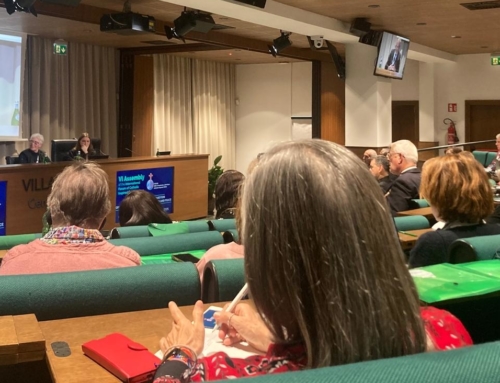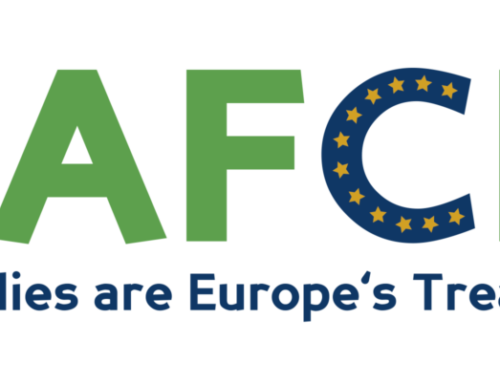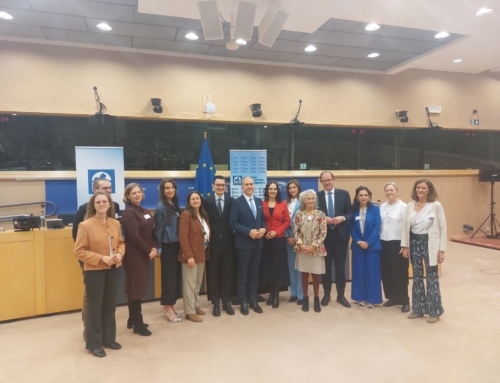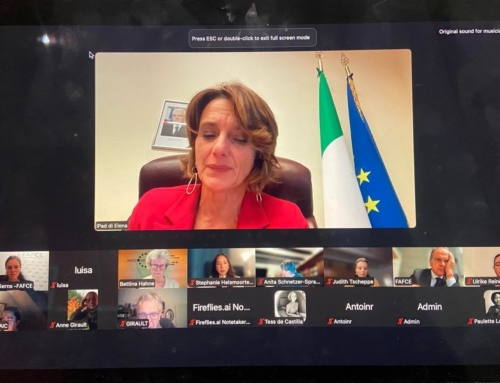Brussels, 23rd May 2024
The European Child Shield Platform is encouraging stakeholders and politicians in Europe to raise awareness about the destructive impact of sexual abuse material online. FAFCE, working with a range of organisations who form the membership of the Shield Platform, urge that the topic of protection of minors online is made a policy priority.
The Shield Platform has published their advocacy paper. FAFCE encourages readers and friends to help spread awareness in their national contexts about this issue, inform and engage candidates, and to support the work of the Shield Platform.
EUROPEAN CHILD SHIELD PLATFORM
The European Child SHIELD Platform: protecting children from p****graphy, is a network gathering legal and medical experts on p****graphy and more than 30 NGOs working in prevention and addiction support from 19 EU Member-States. The objective of the platform is to protect children by recognising online p****graphy as a public health issue, and supporting the sharing of good practices, resources, and knowledge all over the continent.
Shield consists of three subgroups:
- Clinical Research – focuses on data-gathering on p****graphy consumption, health impact of p****graphy, and links between addiction and mental health. This group is comprised of psychological and medical experts.
- Advocacy – leads the efforts to campaign for policy change that protects children. This group is comprised of policy and legal experts.
- Family and Children – deals with the ‘on-the-ground’ effects of p****graphy on the lives of families. This group is comprised of organisations in Europe that support parents and schools on prevention of p****graphy via workshops and educational tools.
Together, they have been working on a common document that gathers most striking statistical data on harmful impact of p****graphy, best legal solutions to protect children and good examples of programmes for children, their parents and schools that may help prevent or deal with this issue. With the help of this document, members of the Platform are calling national stakeholders and politicians to engage and effectively combat and prevent p****graphy and its consequences on children.
Why p****graphy is a public health issue
The Shield Platform’s research points to p****graphy as a public health issue because it:
- Objectifies women, encourages gender stereotypes by increasing aggressive behaviour during sexual encounters
- Heightens the development of sexual compulsivity and addiction, and is harmful for the brain
- Has shown serious consequences in the construction of sexuality during the pivotal period of young people’s psychosexual development
- Damages self-esteem and increases the development of body complexes
- Exacerbates relationship and emotional problems from adolescence onwards due to the disconnection between sexuality and affection created by p****graphy
- Encourages sexual dysfunction from adolescence onwards, worsening into adulthood due to the cerebral habituation to p****graphic content
Recent FAFCE interventions on the protection of minors online
FAFCE has long been calling for greater protection of minors online, as well as speaking out against p****graphy and its many harms. The Board’s Autumn 2023 resolution had a focus on this topic. Entitled Young people and mental health: families as their best allies, it called for “EU Member States to collect all data regarding p****graphy production and consumption trends by both minors and adults, and launch an impact assessment on the contribution of online p****graphy to the creation of harmful stereotypes, criminal behaviour and mental health disorders; initiate discussions on the implementation of an EU-wide ban on the access of children to online p****graphy”.
When current EU protection measures against child sexual abuse material online were extended in February, FAFCE welcomed this progress while reminding of the need for long-term prioritisation.
Reacting to that at the time, the President of FAFCE Vincenzo Bassi said: “The extension to current protections is an important step forward in protecting minors online. It is crucial that online platforms are able to detect materials containing abuse of children, as well as being able to report and remove them. While it is necessary to prolong measures to bridge legislative gaps, the institutions must deliver on longer term solutions that provide security and clarity. These protections must be coupled by a deeper inclusion of family networks, who act as a support in the midst of loneliness and isolation. Families bear the original responsibility of the protection of their children and play the central role in their social and moral education.
“We reiterate also that institutions have a duty to ensure that children are not consumers of harmful material online. Children’s exposure to po***graphy is already a form of online sexual abuse that our societies are tolerating. With technologies like Artificial Intelligence moving faster than our ethical and social conversations, we are in danger of sleepwalking into a moral crisis. This is a battle that requires a fight on both fronts. Future generations depend on us winning it”.








